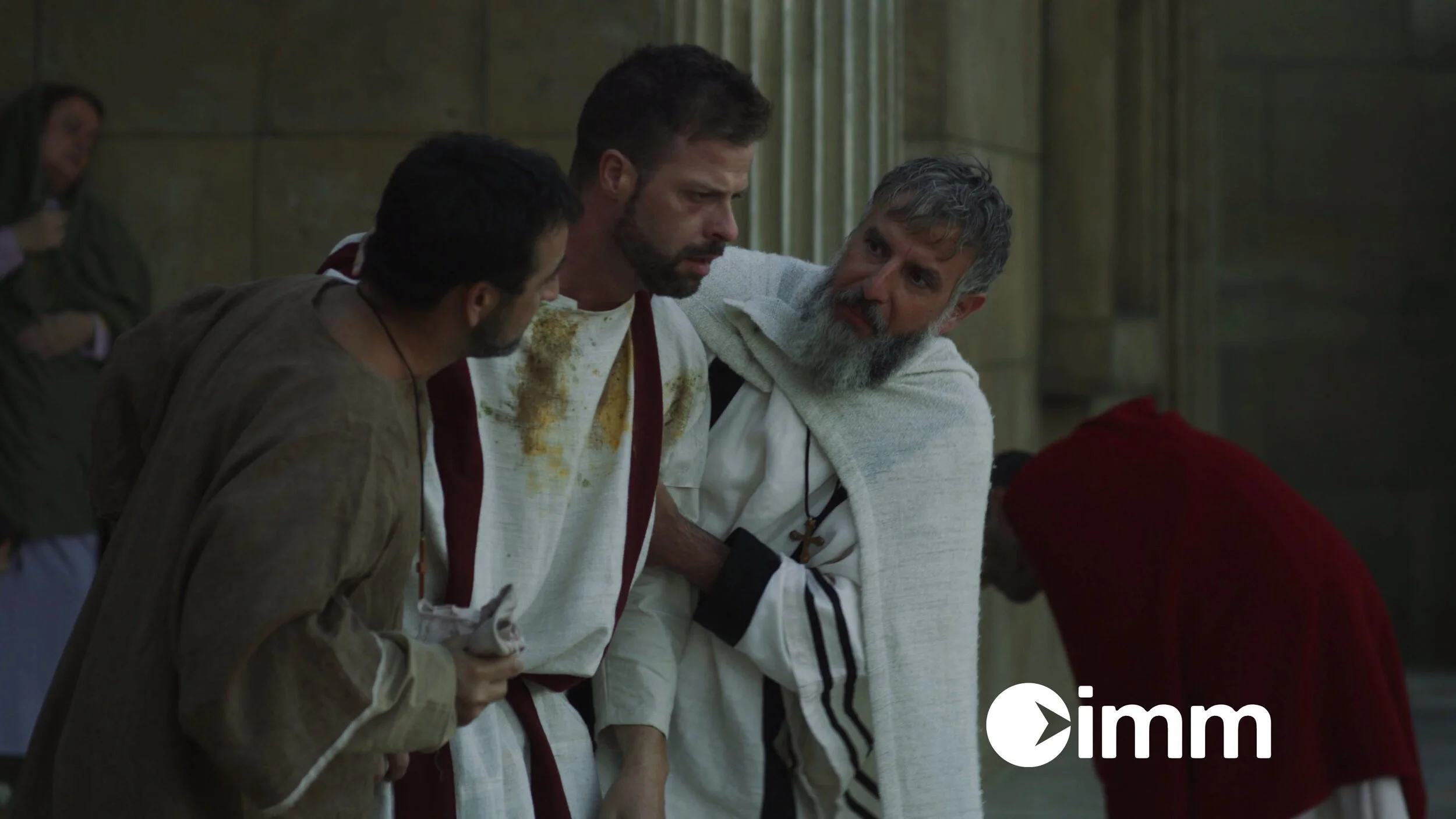The plague struck Carthage in North Africa hard. It was the year A.D. 252. Two years earlier, the disease had entered the Roman Empire through Ethiopia and Egypt. It’s difficult to absorb and process the impact of this pandemic. The great city of Alexandria lost about sixty percent of its population, and, according to one Latin source, Rome itself experienced 5,000 deaths in a single day.
The huge Roman province of Africa Proconsularis spanned what is now part of Algeria, all of Tunisia, and the coastline of western Libya. Its capital was Carthage, a city with many Christians led by their bishop Cyprian. Pontius, the deacon who assisted Cyprian, described the blind panic that seized people:
"There broke out a dreadful plague, as the excessive destruction of a hateful disease invaded every house in turn among the trembling population. Every day numberless people were suddenly attacked and died in their own homes. Everyone was shuddering, running away, trying to avoid the contagion, even wickedly exposing their own dear ones, as if by pushing out the person who was dying of the plague they could keep death out of the house. No one thought of anything except his own selfish interest. No one helped anyone else the way they would have wanted for themselves. Over the whole city lay not just the bodies of the dead, but the rotting carcasses no one had the courage to take away."
Cyprian wrote, "The human race is wasted by the desolation of the plague." He described the symptoms:
“With the bowels in continuous discharge, the strength of the body is gone; the fire that begins deep within burns all the way up to the wounds in the throat; the intestines are shaken with continuous vomiting; the eyes are set on fire by the force of the blood; for some the feet or other extremities are cut off by the infection of diseased putrefaction; as weakness comes from the failures and losses of the body the ability to walk is enfeebled, the hearing is lost or the eyes are blinded.” Cyprian, De Mortalitate 14.
What was it, this plague? Recent research suggests it was a filovirus. The best-known filoviruses today are Marburg virus disease (MVD) and Ebola (EVD).
What was Cyprian to do? What was the Christian church to do in this situation? The backstory makes it complicated. For the Roman Empire, it was the worst possible moment. Historians call it the third-century crisis. The Empire was already weakened in other ways. The Persians had been attacking from the east and were ready for more, Germanic tribes had been invading from the north, the frontiers were collapsing, and within the empire Roman legions fought each other as rival generals struggled for power. Over a period of 50 years, Rome had 26 emperors. Trade and commerce fell, and the currency was debased. The Roman Empire was teetering on the brink of collapse.
In the year 249, a new Roman strongman came to power, Emperor Decius. There was a reason for the political and economic calamity, he claimed. The Roman gods had been neglected. The gods must be pacified, and all would be well. “Pax deorum,” they called it – “the peace of the gods.” Decius launched a rebuilding program of the decaying temples and declared everyone must sacrifice to the gods. Everyone. Those who did would receive a certificate of compliance. Those who refused would be imprisoned and tortured.
The reaction of the Christians was patchy. Some resolutely refused to sacrifice to pagan gods, to demons. Others passed money under the table to Roman officials and obtained their certificates without actually taking part in the rituals. And some just did as they were told by the Roman authorities and made the offering.
Many Christians were arrested and tortured. The bishops of Rome, Jerusalem and Antioch were put in prison, and died. In Egypt, the bishop of Alexandria narrowly escaped arrest and moved into the desert. Cyprian decided he could better serve the church by going into exile and keeping in touch through his letters. He moved his base to a temporary secret location outside the city.
In 251, Decius died in battle against the Goths. The persecution was over for the time being, and Cyprian returned to Carthage to pick up the pieces and get the church running again. Then in 252 came the plague. Now what was the church to do?
Through sermons and letters, Cyprian challenged all Christian believers to reach out and help the whole city of Carthage, including those who had persecuted them. Pontius the deacon records how Cyprian spoke to “the people assembled together in one place,” urging “the benefits of mercy,” and that “there was nothing wonderful in our cherishing our own people only with the needed attentions of love,… [that the Christian] overcoming evil with good, and showing mercy like the divine mercy, loved even his enemies, [and] would pray for the salvation of those that persecute him, as the Lord admonishes and exhorts.” God sends sunshine and showers not only to His own people, said Cyprian, but to all. Should not the children of the Father do the same? And so they did. It is likely that some of the Christians themselves contracted the plague and died. But the work went on. No one in Carthage had ever seen anything like this outreach of compassion, caring for people who cared nothing for them, and in some cases for their persecutors. Cyprian had transformed the church from a community of the suffering into a band of helpers, a “convoy of hope.” It showed the world what true Christianity is like, and it must have attracted many to the faith as the church grew in the coming years. The church and its bishop stood high in the estimation of the city.
But in Rome, emperors came and went, and on September 14, A.D. 258, Cyprian was brought to trial before the Roman Proconsul Galerius Maximus.
“The most sacred Emperors have ordered you to perform the rituals.”
“I will not do it”
“Think it through.”
“Do what you are ordered. In something so right there is nothing to think about.”
“You have been convicted as the author and standard-bearer of the worst of crimes. You will pay the price with your own blood. Thascius Cyprianus shall be executed with the sword.”
That night Cyprian’s torch lit funeral procession was one of the greatest events Carthage had ever seen. The whole city came out in tribute to the great man – Christians and pagans alike. The emperor might do as he liked, but the city did not forget him. Cyprian had found opportunity and purpose even in the plague.
Written by Christopher Gornold-Smith
Note: The story of Cyprian will be the first episode in the new season of docudrama videos Lost Legacy Reclaimed, written by Christopher Gornold-Smith and directed by Denise Godwin, International Media Ministries (AGWM) in Spain. Season One is already available on Amazon Prime.

